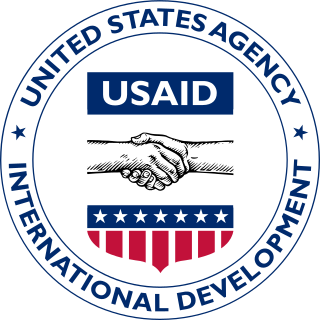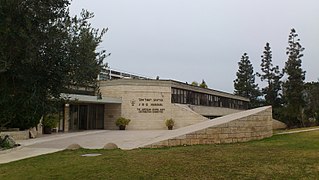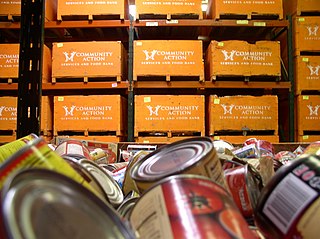Politics
Its agenda is economic self-sufficiency and active citizenship for Vietnamese-Americans through full participation in the political system. It is committed to assisting its affiliates address the linguistic, social, economic, and civic needs facing community members in their specific localities.
Their mission is to empower the Vietnamese-American community in the United States and facilitate the transition of Vietnamese refugees and immigrants from dependency to self-sufficiency.
It works with national and local affiliates to support its member agencies; to strengthen national advocacy capability and, to promote the integration of the Vietnamese American community into American society. The member agencies work with refugees and immigrants (both Vietnamese and non-Vietnamese) at the local and regional level while NAVASA coordinates and develops national programs, initiatives and resources.
To accomplish its mission, NAVASA uses a three-pronged approach, involving the strengthening of the program's development of member-organizations by providing technical assistance, leadership training, and resource development assistance; delivering services to those in need through collaborative efforts with local affiliates throughout the United States; and advocating on a national level for issues of importance to the Vietnamese-American population.

The United States Agency for International Development (USAID) is an independent agency of the United States government that is primarily responsible for administering civilian foreign aid and development assistance. With a budget of over $50 billion, USAID is one of the largest official aid agencies in the world and accounts for more than half of all U.S. foreign assistance—the highest in the world in absolute dollar terms.

The International Rescue Committee (IRC) is a global humanitarian aid, relief, and development nongovernmental organization. Founded in 1933 as the International Relief Association, at the request of Albert Einstein, and changing its name in 1942 after amalgamating with the similar Emergency Rescue Committee, the IRC provides emergency aid and long-term assistance to refugees and those displaced by war, persecution, or natural disaster. The IRC is currently working in about 40 countries and 26 U.S. cities where it resettles refugees and helps them become self-sufficient. It focuses mainly on health, education, economic wellbeing, power, and safety.

The U.S. Economic Development Administration (EDA) is an agency in the United States Department of Commerce that provides grants and technical assistance to economically distressed communities in order to generate new employment, help retain existing jobs and stimulate industrial and commercial growth through a variety of investment programs. EDA works with boards and communities across the country on economic development strategies.

Mercy Corps is a global non-governmental, humanitarian aid organization operating in transitional contexts that have undergone, or have been undergoing, various forms of economic, environmental, social and political instabilities. The organization claims to have assisted more than 220 million people survive humanitarian conflicts, seek improvements in livelihoods, and deliver durable development to their communities.

American Jewish Joint Distribution Committee, also known as Joint or JDC, is a Jewish relief organization based in New York City. Since 1914 the organisation has supported Jewish people living in Israel and throughout the world. The organization is active in more than 70 countries.
The Arab Community Center for Economic and Social Services (ACCESS) is a human services organization committed to the development of the Arab American community. ACCESS helps low-income families, as well as newly arrived immigrants adapt to life in the United States. Its goal is to foster a greater understanding of Arab culture in the U.S. and in the Arab world. ACCESS provides social, mental health, educational, artistic, employment, legal, and medical services.

Catholic Relief Services (CRS) is the international humanitarian agency of the Catholic community in the United States. Founded in 1943 by the Bishops of the United States, the agency provides assistance to 130 million people in more than 110 countries and territories in Africa, Asia, Latin America, the Middle East and Eastern Europe.
Church World Service (CWS) was founded in 1946 and is a cooperative ministry of 37 Christian denominations and communions, providing sustainable self-help, development, disaster relief, and refugee assistance around the world. The CWS mission is to eradicate hunger and poverty and to promote peace and justice at the national and international level through collaboration with partners abroad and in the US.
Citizen Corps is a program under the Department of Homeland Security that provides training for the population of the United States to assist in the recovery after a disaster or terrorist attack. Each local Citizen Corps Council partners with organizations, volunteers and businesses to organize responders, volunteers and professional first responders for an efficient response so efforts are not wasted by being duplicated. By training in Incident Command, volunteers know whom to report to and how the incident is organized. This prevents sites from being inundated by untrained and unprepared personnel preventing operation. Citizen Corps also works in conjunction with the Corporation for National and Community Service in promoting national service opportunities for promoting homeland security needs.
The Polish American Association (PAA) is a non-profit human services agency that serves the diverse needs of the Chicago immigrant community.
VOLAG, sometimes spelled Volag or VolAg, is an abbreviation for "Voluntary Agency". This term refers to any of the nine U.S. private agencies and one state agency that have cooperative agreements with the State Department to provide reception and placement services for refugees arriving in the United States. These agencies use funding from the State Department's Bureau of Population, Refugees, and Migration (PRM) along with self-generated resources to provide refugees with a range of services including sponsorship, initial housing, food and clothing, orientation and counseling. VOLAGs may also contract with the Office of Refugee Resettlement to provide job placement, English language training and other social services. Each of the ten voluntary agencies recognized by the federal government vary significantly in their history, experience, size, denominational affiliation, philosophy, primary clientele, administrative structure, resettlement capacity, and institutionalized resettlement. Of the ten U.S. resettlement agencies, all of them are religiously affiliated or faith-based with the exception of the International Rescue Committee. The tenth VOLAG was added fairly recently in November 2022, when Bethany Christian Services (BCS) was officially designated as its own resettlement agency by the PRM.
Catholic Community Services is a ministry of the Roman Catholic Diocese of Salt Lake City that operates various programs in Salt Lake City and Ogden designed to provide help and create hope for those impacted by homelessness as food insecurity. CCS' Migration and Refugee Services department also equips and empowers immigrants and refugees settling into the life in the United States. Its mission is to practice gospel values of love, compassion, and hope through service, support, and collaboration. It is a member of the National organization Catholic Charities. Its Main Office is located at 224 North 2200 West Salt Lake City, Utah.

The United States established diplomatic relations with Malawi in 1964 after Malawi gained independence from the United Kingdom. Malawi's transition from a one-party state to a multi-party democracy significantly strengthened the already cordial U.S. relationship with Malawi. Significant numbers of Malawians study in the United States. The United States has an active Peace Corps program, Centers for Disease Control and Prevention, Department of Health and Human Services, and an Agency for International Development (USAID) mission in Malawi. Both countries have a common history and English language, as they were part of the British Empire.
Boat People SOS (BPSOS) is a 501(c)(3) nonprofit organization devoted to Vietnamese-American civic and political activism. It is headquartered in Falls Church, Virginia. BPSOS' mission is to "empower, organize, and equip Vietnamese individuals and communities in their pursuit of liberty and dignity.” BPSOS claims that one in 10 Vietnamese Americans has received assistance from BPSOS while still in Vietnam, on the high seas, in a refugee camp, or after arriving in the United States. Through their 17 office locations in the U.S. and two office locations in Southeast Asia, they provide a web of services to support individuals, families, and communities.

Community Action Services and Food Bank (CASFB), located in Provo, Utah, is a non-profit organization that serves the low-income population of Utah, Summit, and Wasatch counties and focuses on the operation of programs that help alleviate poverty. It was founded in 1967 following the signing of the Economic Opportunity Act in 1964 by President Lyndon B. Johnson and is one of more than 1,000 independent Community Action Agencies across the country. It is sponsored by United Way of Utah County.
Catholic Legal Immigration Network, Inc., commonly referred to as CLINIC, is the US's largest network of non-profit immigration activist programs. In its 1986 pastoral statement "Together a New People", the United States Conference of Catholic Bishops (USCCB) observed that the church's ministry to immigrants reflects the "biblical understanding of the justice of God reaching out to all peoples and rectifying the situation of the poor, the orphans, the widows, the disadvantaged, and especially in the Old Testament, the alien and the stranger." Two years later, USCCB established CLINIC as a legally distinct 501(c)(3) non-profit organization to support a rapidly growing need for community-based programs dedicated to serve indigent and low-income immigrants. CLINIC's network originally comprised seventeen diocesan affiliates and has since increased to over 200 Catholic and community-based immigration programs with 290 field offices in 47 states, Washington, D.C., and Puerto Rico. In addition, the network affiliates employ roughly 1,200 Board of Immigration Appeals (BIA) accredited attorneys who serve over 600,000 low-income immigrants each year. CLINIC affiliated agencies represent low-income immigrants without reference to their race, religion, gender, ethnic group, or other distinguishing characteristics.
The Alaska Immigration Justice Project(AIJP) is a non-profit agency that provides low-cost immigration legal assistance to immigrants and refugees in all immigration applications including citizenship, permanent resident status, work permits, asylum, family-based petitions and immigration petitions for immigrant victims of domestic violence, sexual assault and human trafficking.
Third country resettlement or refugee resettlement is, according to the UNHCR, one of three durable solutions for refugees who fled their home country. Resettled refugees have the right to reside long-term or permanent in the country of resettlement and may also have the right to become citizens of that country.
The Hispanic Federation (HF) is a U.S based non-governmental organization focused on supporting Hispanic communities through local, state, and national advocacy. The Federation was founded in New York City in 1990 by a small group of Latino leaders, establishing initiatives to advocate for the interests of the Hispanic community and has expanded to establish programs, and policies in 16 states. The organization's objective is to empower and advance the Hispanic community primarily through service pillars, membership services, advocacy, and community programs. The Federation has formed relationships with a network of 100 Latino grassroots nonprofits, as well as collaborating with organizations, government officials, and private sector partners to enact systemic change related to a variety of socioeconomic issues for Hispanic communities. The Federation has gained national recognition for its work in areas of education, health, immigration, economic empowerment, civic engagement, environment, and organizational development to strengthening Latino institutions to ultimately increase the quality of life within Hispanic communities.







